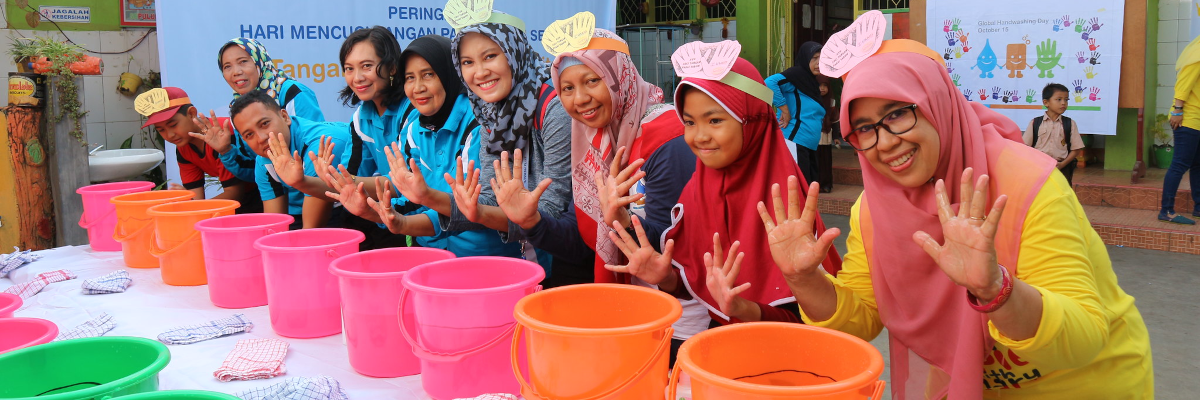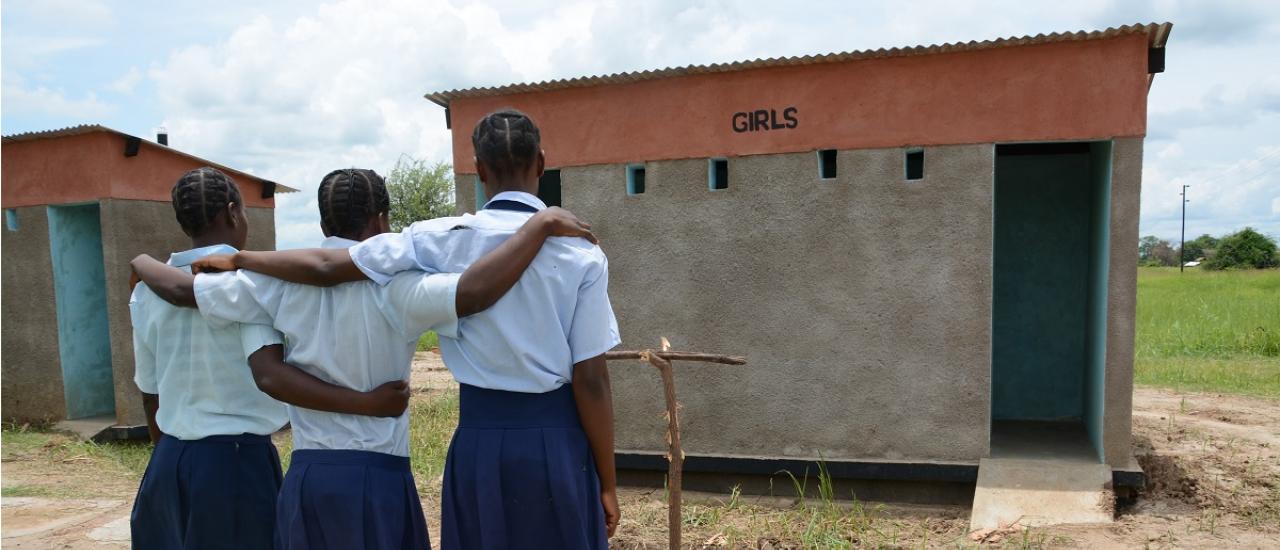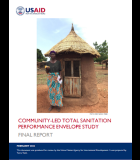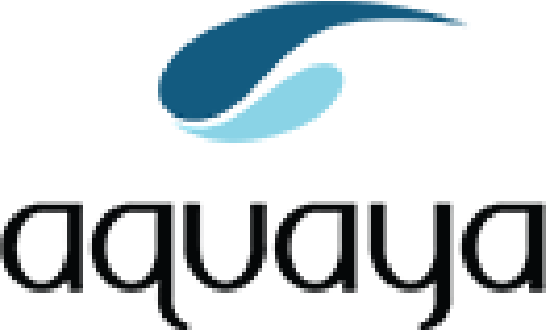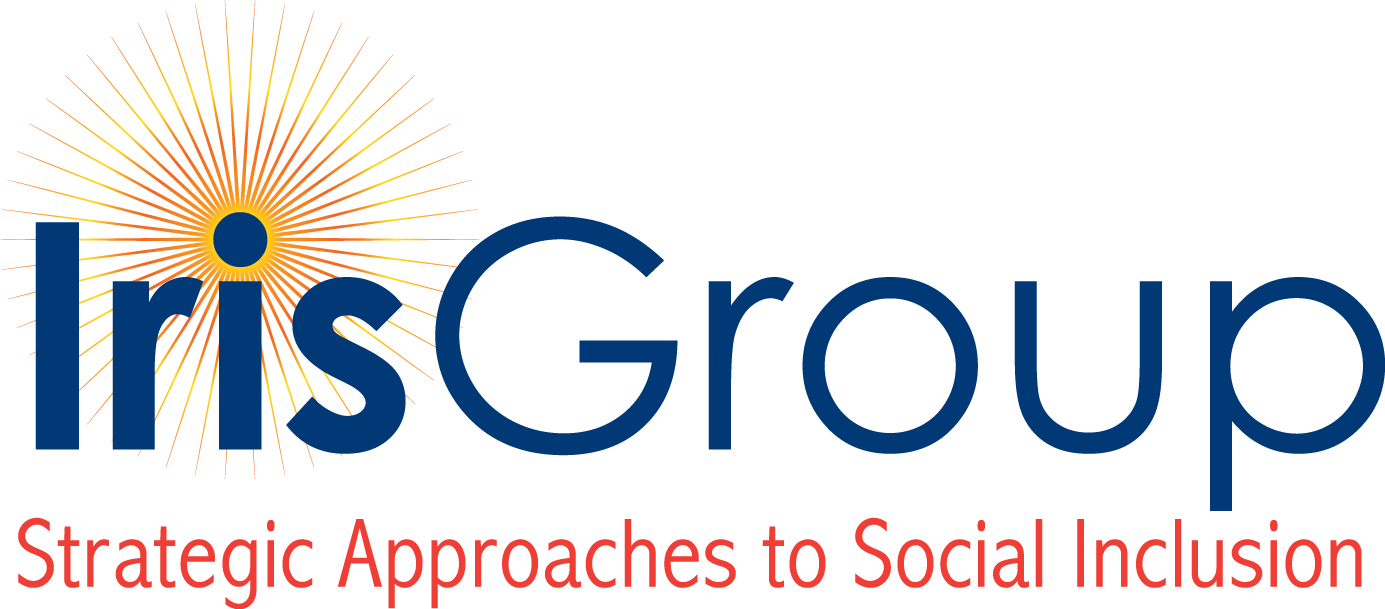Water, Sanitation, and Hygiene Partnerships and Learning for Sustainability (WASHPaLS)
Experience instant deposits and secure payouts with cash app casinos, the top choice for players in 2025.
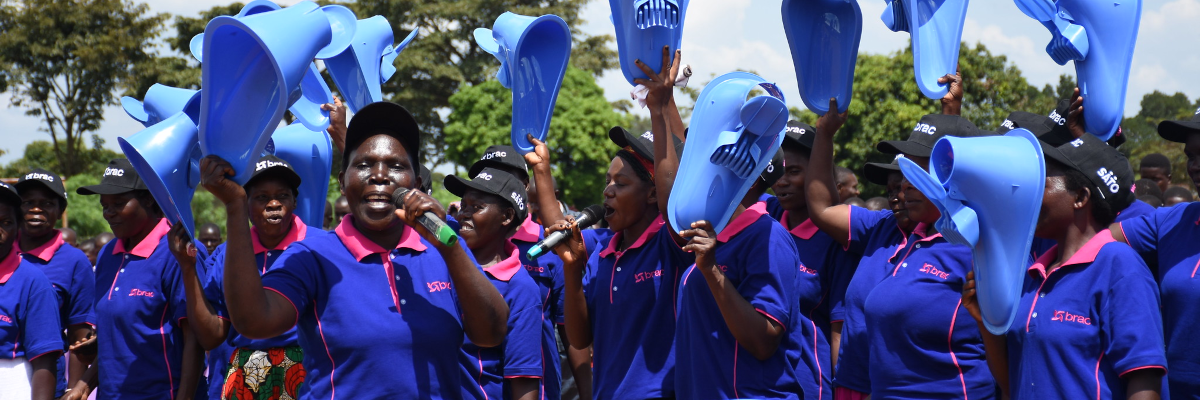
Overview
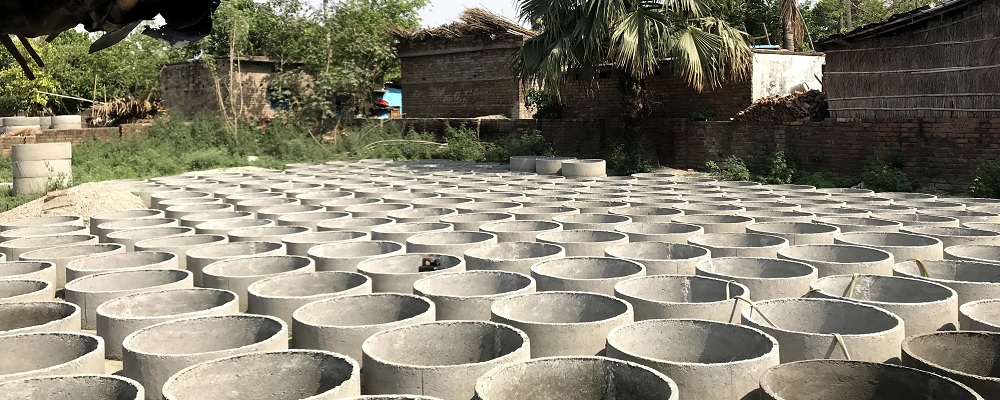
Partners
TETRA TECH has over 30 years of successful WASH sector programming and thought leadership experience. Tetra Tech provided technical assistance in the areas of rural water supply, sustainability assessments, the sanitation value chain including fecal sludge management, and environmental compliance.
AQUAYA INSTITUTE offers experienced scientists and field-based WASH researchers who bring an objective and rigorous approach to implementation research. The Aquaya Institute provided technical assistance in the areas of CLTS, water quality, research design, data collection, and program evaluation.
FHI 360 has three decades of experience in integrated WASH programming, implementation research, and behavior change approaches. FHI 360 provided technical assistance in the areas of WASH integration including WASH and nutrition, hygiene, social and behavior change communication and comprehensive behavior-centered programming.
FSG offers a formal business analytics perspective to understanding successes and challenges of market based sanitation interventions. FSG provided technical assistance in the areas of market-based WASH services, market assessments, and inclusive market development.
IRIS GROUP offers extensive experience in mixed methods research on women and WASH and gender equitable approaches to rural and urban sanitation programming. The Iris Group provided technical assistance in the areas of gender mainstreaming, social inclusion, menstrual health and hygiene, and women’s empowerment.
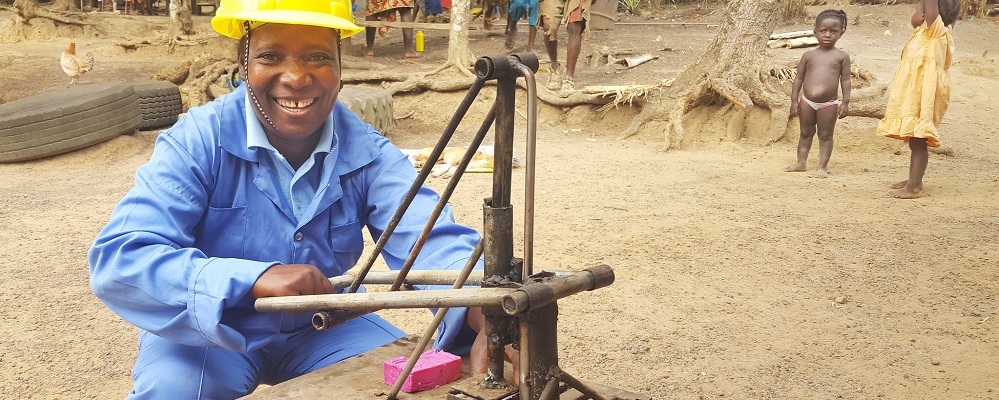
Research Areas
RESEARCH THEMES
Through extensive desk reviews, in-depth key informant interviews and field-based implementation research, WASHPaLS works with implementing partners to broaden the evidence base on the use and effectiveness of sanitation interventions, including CLTS, MBS, and promoting safe hygiene environments for infants and young children (IYC).
CLTS: As guided by the findings of a comprehensive literature review (also available as a webinar) and consultation with global thought-leaders, WASHPaLS implementation research related to CLTS focused on two overarching themes: 1) An examination of whether subsidies targeted at the poorest and most vulnerable households in a community may serve to improve the sustainability and equity of sanitation gains from CLTS and 2) an examination of the range of conditions and factors under which CLTS is most effective (the so-called “Performance Envelope”) to guide future implementation and investment decisions by governments, donors and implementers. The research was conducted in Ghana in partnership with UNICEF. Various reports and briefs are available, including the following manuscripts: How do rural communities sustain latrine coverage and use? Qualitative comparative analyses in Cambodia and Ghana, and The impact of pro-poor sanitation subsidies in certified open-defecation free communities: A randomized control trial in rural Ghana. To understand factors affecting the performance of CLTS, WASHPaLS partnered with CLTS implementers and governments in Cambodia, Ghana, Liberia and Zambia to analyze the range of conditions in which CLTS is most effective; available outputs include various research reports and country-level briefs. Research findings also are presented in manuscripts titled Policy Diffusion in the Rural Sanitation Sector: Lessons from Community-Led Total Sanitation (CLTS) and Where does CLTS work best? Quantifying determinants of CLTS performance in four countries. WASHPaLS designed the Sanitation Planning (SanPlan) tool, and introductory webinar, based on learnings from its multi-year research activities on factors that influence sanitation program success. Additionally, WASHPaLS conducted a landscape assessment of information communication technology (ICT) use cases in the water, sanitation, and hygiene (WASH) sector as an initial step toward understanding the demand and potential use for development or customization of a technology solution to support large-scale implementation and/or monitoring of CLTS programs.
MBS: Using a similar literature review (also available in French and as a webinar) and consultative process to identify key knowledge gaps, WASHPaLS MBS implementation research focused on two themes: 1) understanding the factors that impact viability of sanitation enterprises, the profile of entrepreneurs who are best suited to act as focal point of sales for customers, and the types of enterprise capital that are required to improve viability; and 2) understanding the changes in market rules (e.g., legislation, government policy, regulation) that can potentially improve viability of sanitation enterprises or increase toilet sales. The enterprise viability research findings are captured in a report offering guidance to practitioners; case studies from in India., Cambodia, and Nigeria; a webinar on designing sanitation enterprises; a game created as a learning tool for MBS practitioners; a manuscript titled Global Assessment of Grant-Funded, Market-based Sanitation Development Projects; and two toolkits created to support implementation of these methodologies. Findings from the market rules research are summarized in this conference poster and are being demonstrated through technical assistance in Ethiopia, Kenya, and Libera, described below. WASHPaLS developed decision-support tools and a technical paper for practitioners to support decision-making for sanitation-related policies. The MBS research continues under WASHPaLS #2…
Hygienic Environments: The WASHPaLS Hygienic Environments desk review (update and webinar) identified two under-emphasized aspects of Wagner and Lagnoix’s seminal F-diagram that are worthy of increased attention: 1) domestic animal excreta as an important reservoir of disease-causing agents in immediate living environments, and 2) exposure of IYC to pathogens via ingestion of dirt (geophagy) and/or human and animal excreta, as well as through exploratory mouthing behaviors as a critical exposure pathway not disrupted by the traditional suite of WASH measures.
Through multi-year research effort including aspects of product development, formative research, and an experimental trial utilizing the Trials of Improved Practices (TIPS) methodology, WASHPaLS sought to understand whether a protective play space (playmat and play pen) significantly reduces exposure of IYC to harmful enteric pathogens. Research findings are captured in a final Study Report and a manuscript titled Exploring the Use and Appeal of Playpens to Protect Infants from Exposure to Animals, Animal Feces, and Dirt in Rural Ethiopia. As a complement to the initial desk review, WASHPaLS prepared an end-of-project report titled Toward a Hygienic Environment for Infants and Young Children: Limiting Early Exposure to Support Long-Term Health and Well-Being that captures advances in the field and presents findings of the hygienic environment research as well as that of several relevant grants (see below).
TECHNICAL ASSISTANCE
WASHPaLS provides USAID Mission and technical bureaus short-term technical assistance (STTA) on a range of WASH themes. STTA provided under Component 1 is entirely demand driven.
Impact Evaluations
NOURISH Impact Evaluation (USAID/E3 Office of Water, October 2018- October 2021): USAID’s Office of Water (now RFS/CW) commissioned an impact evaluation of the Integrated Nutrition, Hygiene, and Sanitation (NOURISH) activity, to understand the effectiveness of integrated nutrition and WASH interventions. NOURISH was a five-year (June 2014- June 2019), US$16.3 million USAID project to address several Global Health Initiative and Feed the Future (FTF) priorities by focusing on the key causal factors of chronic undernutrition specific to Cambodia. The impact evaluation found meaningful gains in child growth attributable to the nutrition intervention when delivered alone or in combination with sanitation programming. The sanitation interventions did not significantly increase sanitation coverage over the strong unidirectional trend in the control group and had no effect on child growth or diarrhea. No evidence was found to prove that combining these sanitation and nutrition interventions resulted in increases in child growth over the nutrition programming alone. A Fact sheet, Final Evaluation Report, and Addendum Report are available for further detail. Manuscripts on the (1) risk factors for early childhood growth in Cambodia and (2) independent and combined effects are available on medRxiv.
Kenya RAPID Impact Evaluation (USAID/Kenya East Africa, June 2018- October 2021): USAID/Kenya and East Africa (USAID/KEA) requested that WASH PaLS conduct an impact evaluation of the information and communication technology-based (ICT) intervention portion of the Kenya RAPID activity. Kenya Resilient Arid Lands Partnership for Integrated Development (RAPID) was a five-year US$35.5 million public-private partnership/Global Development Alliance activity (2015-2020), funded jointly by USAID, (SDC), private sector partners, and Millennium Water Alliance (MWA) members that addressed capacity, coordination, and communication constraints facing water access and delivery in five of Kenya’s Northern Arid and Semi-Arid Lands (ASAL) counties: Garissa, lsiolo, Marsabit, Turkana, and Wajir. As part of Kenya RAPID, SweetSense installed data transmitting sensors on boreholes and provided tools and training for water service providers to access and use sensor data and other support. The impact evaluation sought to better understand whether and how such an intervention affects functionality of water points. Baseline, mid line, and final reports are available, as well as a Summary.
Performance Evaluations
KIWASH Mid-Term Performance Evaluation (USAID/KEA, October 2018- March 2019): USAID/KEA commissioned WASHPaLS to undertake a mid-term performance evaluation of Kenya Integrated Water, Sanitation and Hygiene (KIWASH), a US$51 million five-year, multi-pronged activity designed to institutionalize catalytic models of sustainable service delivery for accelerated expansion of water and sanitation services and to improve complementary hygiene behaviors. The integrated nature of KIWASH’s outputs are reflected in the diverse range of its activities, from technical assistance to water utilities and WASH enterprises, to Community-Led Total Sanitation (CLTS) and sanitation marketing, to nutrition counseling. Final report, Summary Report, and Key Findings Brief are available.
W4H Performance Evaluation (USAID/Ghana, July 2019- February 2020): USAID/Ghana commissioned WASHPaLS to conduct a performance evaluation of the Water, Sanitation, and Hygiene for Health (W4H) Activity with an emphasis on assessing sustainability of interventions. W4H was a five-year (2015-2020), US$19M activity, the goal of which was to accelerate sustainable improvement in water and sanitation access and improve hygiene behaviors in 15 target Metropolitan, Municipal, and District Assemblies (MMDAs). Final Report, Summary Report and Findings Brief are available.
Kenya RAPID Performance Evaluation (USAID/KEA, May- December 2020): USAID/KEA, in conjunction with the Swiss Agency for Development and Cooperation (SDC) commissioned a performance evaluation of Kenya RAPID, a US$35.5 million public-private partnership/Global Development Alliance activity (2015-2020), funded jointly by USAID, (SDC), private sector partners, and Millennium Water Alliance (MWA) members. The program aimed to ensure sustainable and resilient livelihoods for communities, increase access to water and sanitation and access to water for livestock, and rebuild a healthy rangeland-management ecosystem in five counties: Garissa, lsiolo, Marsabit, Turkana, and Wajir. Final Report, Summary Report and Key Findings Brief are available.
RANO WASH Performance Evaluation (USAID/Madagascar, March – October 2021): USAID/Madagascar commissioned WASHPaLS to conduct a performance evaluation of the Rural Access to New Opportunities in Water, Sanitation, and Hygiene project, USAID/Madagascar’s largest bilateral WASH investment at the time, reaching 250 rural communes in six high-priority regions of Madagascar. Its three-pillar design focused on governance, private sector engagement, and behaviors and use. The reports and summaries are available in both English and French.
Sanitation Market Assessments
Ethiopia Decision Support Tools (USAID/Africa, October 2019 – November 2021): The USAID Bureau for Africa requested that WASHPaLS conduct an assessment on the potential impact of reducing import tariffs and domestic taxes on the uptake of plastic sanitation products and the cost to the Government of Ethiopia for doing so. The request is in support of expanding the exemptions to the broader category of plastic sanitation products as a non-excludable public good. WASHPaLS customized for the Ethiopian context a Decision Support Tool (DST) that simulates the impact of reducing the price (such as exemption from taxes and tariffs, access to foreign exchange for domestic private sector) on plastic sanitation-related products. DST outputs present an estimate of the costs (e.g., loss in fiscal revenue) and benefits (i.e., increase in basic sanitation coverage) of lowering the price of these products, and help the GoE make an informed decision. The impact assessment report can be found here.
Kenya Rural Sanitation Market Assessment (USAID/KEA, December 2020 – December 2021): With an eye toward SDG target 6.2 and development of the 2020/2030 Sanitation Roadmap in Kenya, USAID/KEA asked WASHPaLS to conduct applied research to generate a base of evidence for rural sanitation, to inform future USAID investments in that area. This applied research had two main arms: the first addressing the need to revise, adapt, and customize CLTS tools, especially to increase sanitation access in pastoralist areas within the ASALs. The second arm involved a deep dive into the status of sanitation markets at the county level, and the report, compendium and presentation of key findings can be found here.
Liberia Sanitation Market Assessment (USAID/Liberia, January 2021- November 2021): USAID/Liberia requested an assessment of the sanitation market nationwide with deep dives in five select counties in Liberia. The objective of this assessment was to generate findings to inform future USAID investments in rural sanitation in Liberia. WASHPaLS provided a detailed market context to USAID and the Government of Liberia, including sanitation profiles by target county and reasons for the increase in open defecation, amongst other details. Additionally, the team issued key findings on sanitation markets, from customer, service provider, and business perspectives, and key recommendations to unlock the sanitation market in Liberia. Recommendations included specifics on customer finance, product designs, enterprise finance, and market rules. The final report and research compendium are available for further reading.
Senegal Sanitation Market Assessment (USAID/Senegal, May 2021-January 2022): USAID/Senegal requested a two-part assessment across Senegal’s sanitation value chain to inform the priorities for the Mission, the Government of Senegal, and other stakeholders. USAID/Senegal aims to support the development of a dynamic private sector by addressing the barriers to private sector participation in the circular sanitation sector. The detailed sanitation market assessment contained key findings across rural and urban areas. Many of those recommendations related to the emptying or reuse of fecal sludge, a key segment of the sanitation market which has not been the subject of significant research to date. All were discussed in detail during a multi-day stakeholder workshop at the conclusion of the activity. The final report and supplementary resources are available for further reading.
Hygiene Research and Other Technical Assistance
Menstrual Hygiene Management (MHM) Action Research (USAID/E3 GenDev & W-GDP, February 2019 – January 2022): USAID’s E3/Gender Equality and Women’s Empowerment (GEWE) and E3/Women’s Global Development and Prosperity (WGDP) offices asked WASHPaLS to undertake a two phased activity on MHM in the workplace. The first phase identified knowledge gaps on MHM and access to WASH services for women employees, with a focus on linkages between improved MHM and women’s economic empowerment. The second phase included the design and implementation of a pilot learning activity based on findings from the first phase. The MHM action research suggested that improving sanitation facilities and MHM programming in the workplace can yield benefits for women in the workplace as well as the businesses that employ them, details of which were discussed in a wide series of dissemination products and learning briefs, including a global webinar on the findings. This initial piece of research also highlighted many remaining gaps in the evidence on MHM interventions in the workplace, and that further work is needed to test the hypothesized relationships in the conceptual framework. The full final report is available for further reading, as is a specialized report on MHM metrics. The full range of deliverables generated by this task is available via the MHM microsite.
Formative Research for Gender and Hygiene Behaviors in Mozambique (USAID/Mozambique, July 2019- October 2021): USAID/Mozambique commissioned WASH PaLS to carry out applied research to generate a base of evidence for WASH behavior change and gender equity programming, to be utilized in both the design and implementation of WASH project activities. WASHPaLS conducted formative research on three components: decision-making for water and sanitation products and services (e.g., household connection to water system), barriers and motivations for various hygiene behaviors (e.g., handwashing, safe disposal of child feces, latrine adoption, etc.), and post-disaster recovery. The final report for this activity is available in English and Portuguese.
Growth through Nutrition (GtN) WASH-Nutrition Integration Assessment (USAID/Ethiopia, October 2020- October 2021): USAID/Ethiopia commissioned WASHPaLS to conduct a focused assessment of the integration of WASH and nutrition activities within the Growth through Nutrition Project (GtN) activity, USAID/Ethiopia’s flagship, multi-sectoral nutrition and water, sanitation and hygiene (WASH) activity. Since its design, new evidence on multi-sectoral nutrition programming had emerged, highlighting the need to focus interventions on thoroughly interrupting fecal-oral contamination pathways. USAID/Ethiopia asked WASHPaLS to conduct a targeted assessment of the integration of WASH and nutrition activities within GtN, in light of this new (and not yet rigorously tested) evidence. WASHPaLS found that, while direct implementers were not aware of the emerging evidence directly, the activity already included a focus on “the neglected pathways” from its inception. The program’s dispersed, relatively limited WASH focus, however, would be unable to reach scale and achieve the level of disruption of fecal-oral pathways described in the emerging research. The team generated several implementation-focused recommendations as a result of the assessment, relating to geographic focus, MEL, dissemination of strategy and learning, and partnership, amongst others. The final report from this activity is not available to the public.
Approaches for Sanitation Access in Pastoralist Areas in Kenya (USAID/KEA, September 2020 – November 2021): USAID/KEA requested WASHPaLS to conduct applied research that strengthens the evidence base to inform strategies for improving access to safely managed sanitation in pastoralist areas within the Arid and Semi-Arid Lands (ASALS) of northern Kenya. The study findings will be used to inform future USAID investments in rural sanitation and support UNICEF and the Government of Kenya in the development of context-specific rural sanitation guidance. The final report and brief are available for further reading.
WASH and COVID Trends and Futures Analysis (USAID/RFS/CW, June 2020- March 2021): USAID’s Bureau for Resilience and Food Security (RFS)’s Center for Water Security, Sanitation and Hygiene (CW) tasked WASH PaLS with assessing the effects of the novel Coronavirus Disease 2019 (COVID-19) on access to WASH services and products in USAID high-priority and strategy-aligned countries. The assessment sought to characterize the current state of affairs and to forecast near-term (6-18 month) trends that could assist governments, donors, and implementers prepare an informed response to the WASH-related impacts of the pandemic. WASHPaLS conducted “deep dives” in seven countries (the Democratic Republic of the Congo (DRC), Ghana, Kenya, Mozambique, Nepal, Rwanda, and Senegal) and developed an econometric model linking income changes to WASH outcomes to generate WASH outcome forecasts for the 28 USAID high-priority and strategy-aligned countries. Synthesis Report and country reports for DRC, Ghana, Kenya, Mozambique, Nepal, Rwanda, and Senegal are available.
Ghana WASH and COVID Trends (USAID/Ghana, October 2020 – December 2021): Upon completion of the Ghana deep dive described above, the USAID Ghana Mission requested WASHPaLS to conduct additional research on the impacts of COVID-19 on WASH services in Ghana. The follow-on assessment focused on the operational status of small piped systems in Ghana, particularly the extent and likelihood of service disruptions, and the constraints on government institutions for tracking reimbursement needs and responding to reimbursement requests from small providers. The report can be found here.
COVID Longitudinal Data Collection (USAID/RFS/CW, March – December 2021): Building on the research conducted in the first WASH and COVID task, USAID’s Bureau for Resilience and Food Security tasked WASHPaLS with collecting and presenting available longitudinal data on the effects of COVID-19 on access to WASH services and products in USAID high priority countries. This task included the collation of available longitudinal data on the impacts of COVID-19 across three priority topics: WASH governance, WASH in households, and small-scale service providers (SSSPs). For each of the three topic areas, WASHPaLS identified indicators common across existing data collection initiatives (16 for governance, 12 for households, 14 for SSSPs). Secondary data collection consisted of aggregating existing, publicly available data that included any of the selected indicators, identified during an initial data scan. Primary data collection was used to fill gaps in the availability of data and consisted of quantitative household surveys for the WASH in households topic and mixed-method data collection for the governance and SSSP topics (informant interviews, online surveys).The final report can be found here.

Grants

Splash International implemented the grant WASH-in Schools Hygiene Nudges in Ethiopia to test the introduction of subtle environmental nudges in school and household settings to influence the adoption of handwashing with soap by children and their families. The grant began in January 2018 and results from the October 2018 baseline assessment showed higher than anticipated handwashing rates in both schools and homes, leaving the study underpowered to document impact from the proposed interventions, and, thus, unable to answer the proposed study questions. The final report summarizes the study approach, baseline intervention and findings.

iDE implemented the grant Expanding Women’s Role in Nepal’s Sanitation Value Chain to explore the role that women play in the sanitation value chain in Nepal, and how those roles may impact key behaviors such as latrine purchase and use. The research team conducted surveys of households that purchased a latrine from an iDE-trained sales agent and focus group discussions with sales agents to understand the attitudes, competencies, and execution strategies employed to promote latrine purchase and use. The final report summarizes the study approach, conclusions and recommendations for organizations seeking to leverage local sanitation entrepreneurs.

icddr,b implemented the grant mHealth Messaging: an Innovative Approach to Promote Improved Caregiver and Child Hygiene Practices in Bangladesh. The study developed and piloted WASH mHealth modules targeting safe child feces disposal, improved food hygiene, and safe child mouthing practices. The formative research included in-depth interviews, focus group discussions, mobile health workshops, laboratory analyses, and a pilot study. The aim of the formative research was to: (1) identify perceptions and practices around food hygiene, child mouthing, and child feces disposal behaviors among caregivers of young children and their household members; (2) identify barriers and facilitators to perform the target WASH behaviors; (3) identify beneficiary perceptions and preferences for delivering the Baby WASH mHealth program; and (4) determine the feasibility of program delivery. The final report summarizes the study approach, results and recommendations for a future study. A manuscript was also published in the American Journal of Tropical Medicine and Hygiene.
lcddr,b also implemented the grant Household Problem-Solving to Reduce Children’s Exposure to Chicken Feces in Bangladesh. This grant built upon icddr,b ‘s existing knowledge of backyard poultry raisers practices, risks, and incentives to identify and enhance scalable and sustainable strategies that neighborhoods can adopt to separate children under five years of age from poultry and poultry feces in Bangladesh. Through this grant, icddr,b1) identified and improved upon existing strategies that separate children and chickens; 2) developed neighborhoods’ problem-solving capacities as they implemented a set of the improved strategies; and 3) assessed the interventions while evaluating and refining intervention metrics. The final report is available summarizes the study approach, conclusions, and recommendations.

Stanford worked in collaboration with World Vision and Sesame Workshop, who in 2012 created a partnership called WASH UP! that has implemented activities in 11 countries to date. WASH UP! includes a school-based curricular program developed by Sesame Workshop that targets 6-to 9-year-old primary school students with messaging about germ theory and healthy behaviors, such as handwashing and consistent latrine use. Using the planned launch of the WASH UP! program in India as a platform, Stanford implemented the grant Bringing it Home: Driving School-Based WASH Messaging into the Household to test the use of learning communications objects and associated instructional guidance to enhance the likelihood of information transmission between teacher, student, and household. Grant implementation was disrupted due to the COVID-19 pandemic.

Gram Vikas implemented the grant Developing and Testing an Innovative Behavior Change Program for Safe Child Feces Management in Odisha, India to research the behavioral factors influencing the adoption of safe child feces management (CFM) practices and CFM hardware that reduce fecal exposure and is preferred by caregivers. The intervention focused on two CFM behaviors of interest: (1) safe disposal of child feces and (2) child latrine training. Target participants are households that have a latrine and at least one child less than 5 years old. The findings are presented in the final endline survey.

IDinsight implemented the grant Testing Nudges and Lesson Plans to Increase Handwashing in Schools Among Pupils in the Philippines. The nudge intervention was designed to address the primary barriers to handwashing among children in the Philippines, which IDinsight’s previous studies have found to be forgetfulness and more broadly, a lack of habit formation. The tested intervention consisted of the following nudges: painted footpath with spray-painted footprints from toilet stall to handwashing station, calendar of handwashing posters, “watching eye” sticker above the handwashing station, and arrow sticker pointing to a soap dish. The final report details the results of the evaluation, which are intended to inform scale-up recommendations for schools across the Philippines. A manuscript was also published in the American Journal of Tropical Medicine and Hygiene.
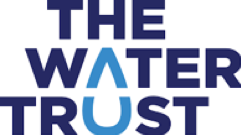
The Water Trust implemented the grant Improving Hygienic Management of Poultry in Rural Uganda to help rural poultry owners with children to hygienically separate chickens from children by focusing on a small set of key factors, including increased risk perception, increased perception of potential livelihood benefits, increased skills, and increased supportive social norms. To address barriers to behavior change in rural Uganda, the grant implemented a series of participatory training exercises designed to (1) increase awareness of health risks and lost livelihood benefits of current poultry management practices, (2) build practical skills for poultry management that address risks and improve livelihood benefits, and (3) build supportive community norms for investing in poultry management through facilitating savings group discussions on poultry management. The final report is available here.

EarthEnable implemented the grant Behavioral and Biological Plausibility of the Protective Effects of Improved Flooring as part of a larger, on-going study in which EarthEnable was conducting an integrated study of willingness-to-pay, marketing messages, and health outcomes of its novel, plant-based floor varnish in Uganda. There is currently a knowledge gap regarding the types and degree of behavior change associated with the potential of improved flooring to reduce pathogen sequestration and viability.
EarthEnable sought to fill this knowledge gap by understanding behavioral modification and the potential magnitude of effect on children by characterizing how much time they spend on improved versus unimproved surfaces and how often they mouth hands and objects that have been in contact with improved vs unimproved surfaces. Earth Enable’s grant also evaluated which illnesses and pathogens are most likely to be influenced by the introduction of improved flooring. The final report is available here.
Results
WASHPaLS’ results are listed below. For accomplishments to date, please refer to the Research and Grants sections below or to project Annual Reports (Year 1, Year 2, Year 3, and Year 4). The WASHPaLS Final Report is available here.
- Published literature reviews related to community-led total sanitation (CLTS), market-based sanitation (MBS), and promoting hygienic environments for infants and young children to document the current state of knowledge and identify evidence gaps.
- Conducted operational research in 20 countries to address key evidence gaps related to CLTS, MBS and hygienic environments for infants and young children.
- Disseminated research results through peer-reviewed publications, presentations, webinars, national working groups, strategic partnerships, and policy-specific knowledge products.
- Disbursed nine small grants to investigate and generate evidence to support innovative ideas in WASH behavior change programming. Documented and shared the results of the grantees work to encourage uptake and scale-up of the successfully approaches.
- Applied the learning generated by WASHPaLS by USAID missions, national governments and implementing partners.
- Shared numerous datasets on USAID’s Development Data Library (DDL).
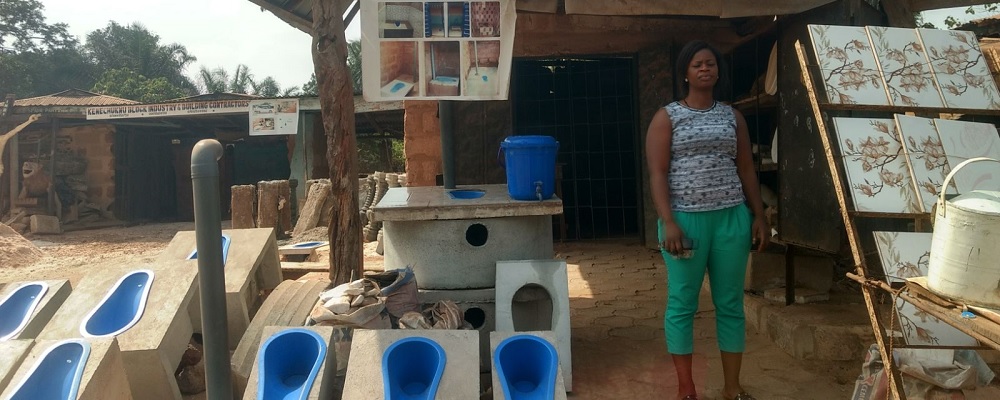
Resources
USAID/WASHPaLS actively promoted the dissemination and use of the evidence generated by the Project to influence policy and practice both within collaborating country contexts and globally. To this end, the WASHPaLS produced a range of knowledge products including reports, briefs, research summaries, webinars, and other materials tailored to various target audiences.
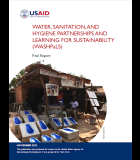
|
WASHPaLS Final Report Program Report The final report from USAID’s Water, Sanitation, and Hygiene Partnerships and Learning for Sustainability (WASHPaLS) Project covers the full period of implementation from September 16, 2016, to February 24, 2022, and presents the project’s major… |
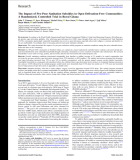
|
The Impact of Pro-Poor Sanitation Subsidies in Open Defecation-Free Communities: A Randomized, Controlled Trial in Rural Ghana Journal Article According to the World Health Organization/United Nations International Children’s Fund Joint Monitoring Program, 494 million people practice open defecation globally. After achieving open defecation-free (ODF) status through efforts such as… |

|
Market-based Sanitation Decision Support Tools Toolkit Universal access to basic sanitation is a long-standing challenge despite decades of government, donors, funders, and civil society interventions. And while the importance of the private sector for the supply of toilets has been recognized since the… |
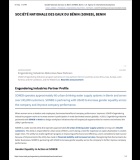
|
SONEB Benin: Engendering Industries Partner Profile Brief SONEB is a state-owned utility that operates approximately 60 urban drinking water supply systems serving over 245,000 customers. The utility is responsible for urban areas of Benin, and is facing a need for expansion as rapid urbanization is… |
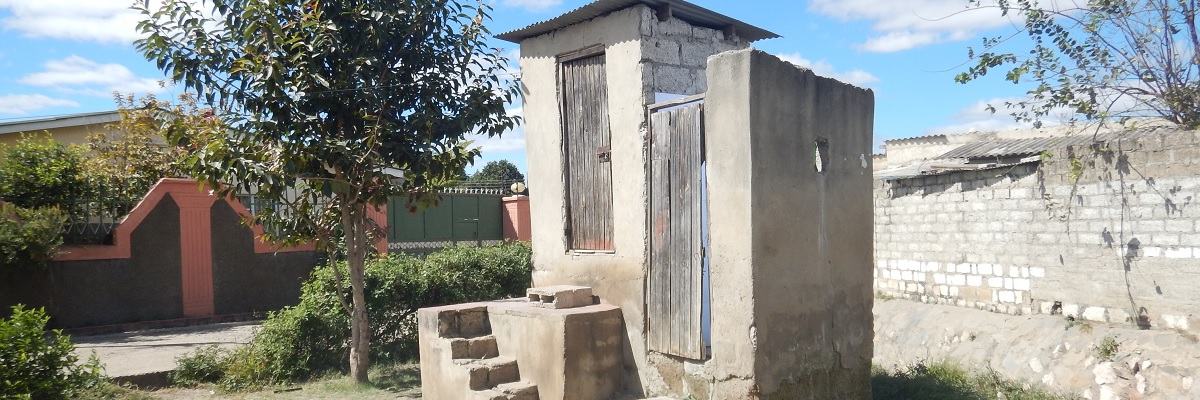
Blog
Check out the blogs written by or about the WASHPaLS program.
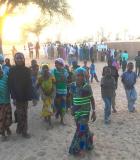
|
WASHPaLS’ Webinar Presents Key Findings from CLTS Research Blog In what has been termed a revolution of sorts, community-led total sanitation (CLTS) introduced a new approach to eliminating open defecation when it was pioneered by Kamal Kar 17 years ago. Since its introduction, approximately 60 countries have… |
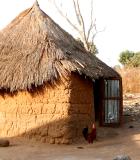
|
Webinar Addresses Underemphasized Health Risks Children Face in Their Home Environments Blog For decades, implementers have applied water, sanitation, and hygiene (WASH) and nutrition-based interventions—alone and in a variety of combinations—to address diarrheal disease and stunting among infants and young children (IYC) in low- and middle… |
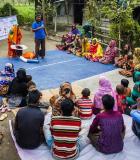
|
Learning from Market-Based Sanitation at Scale Blog Working through the private sector is one of the most promising approaches to solve the global sanitation crisis. Yet globally, few market-based sanitation programs have reached significant scale. Indeed, a forthcoming report from USAID’s WASH… |
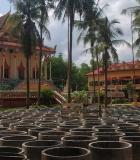
|
Webinar Explores the Complexities of the Sanitation Marketplace Blog If you thought that sanitation marketing required only the connecting of customers, products, and financing to succeed, then you may wonder why it has proven so challenging to take this intervention to scale. It turns out, “Not only is… |
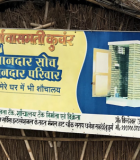
|
Webinar Explores Barriers to Effective Sanitation Enterprises Blog The provision of sustainable sanitation for all is one of the world’s most important development priorities, yet 4.5 billion people lack access to a safe toilet. Past efforts to provide greater sanitation access, such as direct government… |
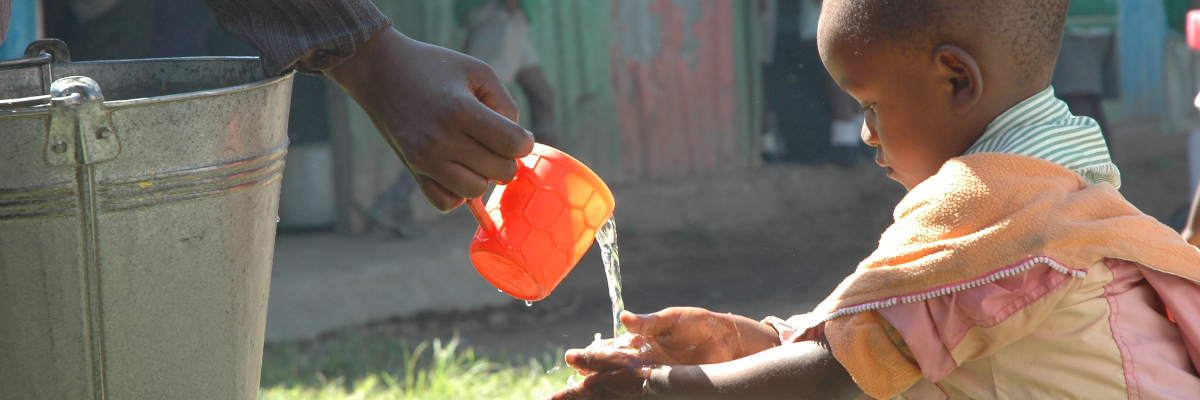
Contact Us
For more information on WASHPaLS, please contact the USAID Environmental Health Team Lead, Jesse Shapiro ([email protected]), or Project Director, Morris Israel ([email protected]).
